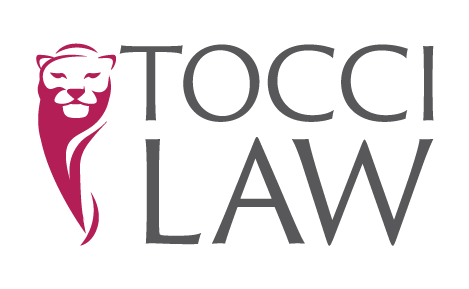A parent passing away is always difficult. Having to gather and administer his/her assets can be an added burden during this tough time. An estimated 80% of Americans die each year without having a will or estate plan. Correspondingly, it is more likely than not that you could find yourself in a situation where your parents pass away without a will. In legal terms, when a person dies without a will this is referred to as having died intestate. In New York, there are laws that have been enacted to ensure you and your family members inherit your parents’ property and assets when they pass away and do not have a will. These laws set forth which family members will inherit which portions of your parent’s estate.
When a person passes away without a will, Letters of Administration will need to be granted to an Administrator. This means a close family member requests permission from the court to have the legal authority to administer the decedent’s estate. Once the court grants that authority, Letters of Administration are granted to the Administrator. An Administrator is a legal representative, who essentially steps into the shoes of the decedent (the person who passed away) and can transfer, sell, and distribute property with the same authority as the decedent. This is a similar process to probating a will, except your parent’s property, will pass according to New York State law instead of his or her individual wishes. Without Letters of Administration being granted by the Court, your family could be unable to access your deceased parent’s individually owned property. This may leave you unable to sell or transfer property and to access bank accounts. Further, if your parent had any previously pending lawsuits or a potential wrongful death action, there will be nobody who can legally sue until Letters of Administration are granted.
What do I do first?
First, be sure there was, in fact, no will. Check all of the places where your parent may have saved important documents. If your parent had a safe deposit box, a family member should petition the court for an order to open the safe deposit box to search for a will and take an inventory of belongings. Your estate attorney will be able to perform this legal work on your behalf. If your parent had an attorney, call the office to see if the firm drafted a will. Check with the Surrogate’s Court in the County where your parent resided to see if one has been filed. Finding a will in the middle of an administrative proceeding can be a hassle. It is a smart idea to thoroughly ensure there was, in fact, no will.
Don’t take assets that you easily have access to, such as cars and cash. [Sidebar: it is a crime in the State of New York to take assets from the decedent if they do not legally belong to you, even if you think you should inherit them.]
Obtain a few copies of certified death certificates and the funeral bill. You may make funeral arrangements prior to contacting your attorney. Search for safe deposit box keys, bank and stock information, and debt and bill information. If you are able, you should safeguard any assets that may be damaged, lost or stolen. Do not use credit cards or remove cash from bank accounts solely in the decedent’s name. Do not drive the decedent’s vehicles or use any of his or her property until you legally have the authority to do so.
Contact an attorney at your earliest convenience. Even if you call just to inform your attorney that you had a death in your family and expect to be in need of services. They will usually be able to preliminarily point you in the right direction according to your current situation. After the services are complete and your life is less hectic, you can sit with your attorney to plan the next steps.
Who will inherit my parent’s property and assets when there was no will?
If your parent passes away without a will, his/her children and surviving spouse are entitled to inherit the estate assets. In New York State, when the decedent (the person who passed away) did not leave a will and:
- When there is a surviving spouse and no children: the spouse will inherit the estate assets;
- When there are surviving children and no spouse: the children will inherit the estate assets, equally;
- When there is a surviving spouse and surviving children: the surviving spouse will inherit the first $50,000 of the decedent’s estate and one-half (1/2) of the remaining estate funds. The surviving children inherit the other half of the remaining estate funds, equally.
If there is just a spouse and no children left behind, that spouse will inherit everything. It does not matter that the decedent has parents or siblings that outlive him/her. Parents, siblings, cousins and other family members are not entitled to inherit property that is solely in the decedent’s name.
Similarly, where there are surviving children and no spouse, the surviving children will have the right to inherit all of the property, despite the existence of any other family members.
Where there is a surviving spouse and children, the surviving spouse will inherit the first $50,000 of the decedent’s estate and then half of the remaining estate funds. The children will inherit the other half of the remaining estate funds, equally. However, keep in mind that this only applies to estate assets. Your parent could have had a house and other assets, none of which the children are entitled to inherit because they may not be estate assets.
[Sidebar: You must legally be a child of the decedent and a legal spouse in order to inherit under the laws of intestacy. Your attorney can help you identify which family members are legally entitled to inherit.]
Which assets can be inherited?
The laws of intestacy only apply to property legally owned individually by the parent who passed away. Property not owned by that parent may not be considered an estate asset, and therefore is not subject to be inherited as outlined above. If one of your parents passes away without a will, and his/her spouse is still alive, the spouse may legally take ownership of jointly owned property. In some instances, this can happen by operation of law, meaning that the ownership automatically passes to the spouse- excluding that property from the estate subject to be inherited. Married couples that own houses as tenants by the entirety will automatically inherit the entire property. The house owned by a parent who passes away, therefore, may not leave a home that can be inherited by his/her children.
Below is a list of assets that generally do not pass under the laws of intestacy:
- Property in a living trust
- IRA funds, 401k or other retirement accounts
- Life insurance proceeds
- Securities held in a transfer-on-death account
- Payable-on-death bank accounts
- Property owned with someone else in joint tenancy or tenancy by the entirety
These assets will pass to the co-owner or surviving beneficiary the decedent previously named and are unaffected by the process of an intestate will.
Discussing your situation with your estate attorney will help you identify which assets and property you are specifically entitled to inherit.
What are my parent’s unmarried partner’s rights?
Usually, your parent’s unmarried significant other has no claim to property owned solely by your parent, even where the significant other was using your parent’s property. Naturally, your parent’s unmarried significant other is entitled to all property in the unmarried spouse’s name. If your parent was living with his or her unmarried significant other, but the house belonged solely to your parent, you will need to get Letters of Administration to evict the partner, should he or she not leave voluntarily. The partner will likely have belongings in the home that he/she paid for and own. Consequently, the partner could have a valid claim to possessions in the home. Property that is jointly owned by the couple may not be considered an estate asset. Alternatively, the surviving partner has a claim for at least his/her percentage of ownership in the jointly owned property.
What if my parent leaves behind minor children?
If your parent leaves behind minor children and that child’s other parent is still alive, the surviving parent will have the first rights over all other people, usually despite objections, to raise the minor children (assuming his/her parental rights were not terminated by a court of law). However, if the parent passes away and leaves no other parents and no documents expressing wishes for a guardian, a guardian will need to be appointed by the court. If there is a close family member who is able to care for the child and provide a good home, the courts prefer to place the child in the care of the family. If not, the child could be placed with more distant family members, close friends of the decedent, or in foster care.
Just because a child is a minor, it does not limit their inheritance. However, their portion will need to be placed in a trust, to be protected until the child is legally old enough to make financial decisions for him/herself. A trustee will need to be nominated to control, preserve and invest the funds and assets in the best interest of the child.
If my parent had no known property, do we need to go to the Surrogate’s court?
If your parent left property behind that did not automatically pass to another person, someone will need to petition the court to be legally named the Administrator. Without a legally authorized Administrator, even a spouse may be unable to sell certain property and access bank accounts, money market accounts, Certificates of Deposit, etc. However, if your parent only owned a car worth under $25,000, the surviving spouse could transfer the title to his/her name through the DMV.
If your parent owned no property individually, you may not need to petition the court for Letters of Administration. However, it may be a smart move to obtain Letters of Administration, should something come up in the future. For example, even if your deceased parent owned no estate property, in order to start a wrongful death lawsuit on behalf of your deceased parent or handle his/her pending legal matters, the estate will need an Administrator.
[Sidebar: where your parent’s estate is less than $30,000, whether he/she had a will or not, a “small estate” or a Voluntary Administration proceeding can be filed. This type of proceeding is generally quicker and less expensive.]
Every single situation is unique and should be assessed by a skilled attorney for a legal analysis. This blog does not mention every topic, nor does it outline the topic in full detail. Not everyone owns the same assets. Those assets may be owned in special forms. Additionally, every family has different members and diverse relationships. For personalized advice and administration, call the Law Offices of Jennifer G. Tocci, P.C., (631) 343-7676.
Attorney Advertising. This blog post is designed for general information only. The information presented at this site should not be construed to be neither formal legal advice nor the formation of a lawyer-client relationship. Prior results do not guarantee a similar outcome. New York State only.










